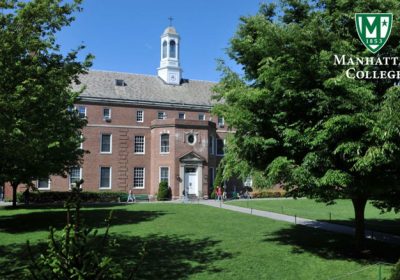Written for Ambassador Philippe Etienne
Dear Jeffrey Sachs,
Dear Sonia,
It is a great pleasure to welcome you to the consulate general this morning to celebrate the work and accomplishments of Mr. Jeffrey Sachs.
Mr. Sachs has excelled in so many ways that it is hard to find a single word to describe him. The term public intellectual or global thought leader comes to mind. Although millennials and Generation Z would probably refer to you as a world influencer par excellence 😉
Though I don’t think you’ve created a TikTok account yet, perhaps that is yet to come 😉
Mr Sachs, you are widely known and respected as one of the world’s leading economists. At the age of 28, you had already become a full professor with tenure in the economics department at Harvard. At 28, most academics are just finishing their PhDs… if they’re lucky! For the past 40 years, you’ve held the highest professorial ranks in two of the most prestigious universities in the world, Harvard and Columbia.
But what is most remarkable about your academic career is that you’ve resisted the trend, which is often seen in academia today, to become hyper-specialized and compartmentalized. To the contrary, your research and your thinking continually cross over from the proverbial Ivory Tower into the real world to help solve its most immediate, pressing, and complex problems.
For example, if we look at your research interests, which transpire from your scholarly publications, listed on your 67-page-long CV ! 😉 what is apparent is that you have been willing to take on some of the most pressing world problems.
In your first book, published in the 1980s, the trend is already clear. You studied the effects of stagflation in the world economy. Later in the decade, you shifted to trying to understand how debt was holding back developing countries. In the 1990s, after the major changes that took place in the Soviet Union, you turned to figuring out how to manage the transition from central planning to market economies. In the 2000s, you became interested in how to end extreme poverty. Today, you are focused on sustainable development and how to slow down human-induced global warming.
What a list! Many scholars would be satisfied with tackling one of these complex and multifaceted problems, or more likely, a small subset of them. But you have dealt with them all and come up with solutions that have been widely praised, and often implemented worldwide.
Rather than write for specialists in a technical prose, your books are accessible to the public and several have become bestsellers, such as your 2005, The End of Poverty, in which you point out that simple measures like increasing the availability of anti-malarial bed nets in sub-Saharan Africa, and more politically challenging ones like cancelling the debt of the world’s poorest countries, would go a long way towards pulling 1.1 Billion people out of their economic misery.
But in addition to writing about pressing world problems in a language that is accessible to a global public sphere, you play a direct role in world affairs. In fact, this role has been so important that Times Magazine has included you in its list of the 100 most influential leaders in the world not once, but twice.
In the 1990s, you were one of the main advisers to governments in Eastern Europe and the former Soviet Union, which were seeking to make the transition from central planning to a market economy. Based on the success of your recommendations, which are widely seen as having stabilized hyperinflation, other countries sought your advice on macroeconomic issues as well, including Slovenia, Estonia, Russia, China, India, Bolivia, Peru, and a number of countries in Africa.
You’ve been a key advisor to the leaders of international institutions, mostly at the UN. You have been the special advisor to every one of the UN Secretaries General since 2001, and this advice has brought tangible, real-world results. For example, in the early 2000s, you were commissioned to help design and launch a Global Fund to fight AIDS, tuberculosis, and malaria. Now this fund mobilizes and invests more than 4 billion dollars per year.
You chaired the World Health Organization Commission (2000-2001) that concentrated on implementing UN Millennium Goals on health, by scaling up the financing of health care and disease control in low-income countries. You also chaired the UN Millennium Projec,t which was tasked with developing a concrete plan to reach the millennium goals (from 2002 – 2006).
Another way in which you have made sure that your research and your thinking do more than fill up the pages of scholarly journals is by creating and leading cross-disciplinary programs that draw on experts from different academic fields to find solutions to pressing social, economic, and environmental problems. You led the Earth Institute at Columbia University for more than 10 years (2002-2016), and you are now the director of the Center for Sustainable Development at this Institute. You are also the President of the United Nations Sustainable Development Solutions Network (SDSN).
There is also much much more that I could say about all that you have done and are doing. You sit on so many advisory boards to governments and agencies worldwide, and you are part of so many global and country-specific projects that it would take me until this evening to list them all here 🙂
And what’s especially remarkable is that you have managed to have such a tremendous impact as a public intellectual and a civil society actor without ever having actually held a public office with formal powers! Perhaps that is actually the reason for your success 🙂
France has been committed to some of the same causes as you, such as reducing poverty and slowing down climate change. Our country’s leaders have been profoundly impressed by everything that you have done to tackle both of these problems, on whose outcome the future of humanity depends. And this is particularly the case of President Macron who I know well.
We were also very glad to be able to count on your moral support for, and your practical involvement in, some of our international climate efforts. For example, we welcomed the public statement that you made with 80 other economists just before the One Planet Summit of 2017, in which you called for an end to investments in fossil fuels. We also appreciated your participation in the One Planet Lab, the think tank of the One Planet Summit launched by President Emmanuel Macron, which mobilizes influential leaders from the non-profit sector, universities, business, and finance to find solutions to global warming.
Mr Sachs, we look forward to continuing to do more important work with you.
And it is for all of these many, many reasons, that France has decided to appoint you to the rank of Knight in the Order of the Legion of Honor. The Legion d’Honneur is the French Republic’s highest honorary distinction. It was created by Emperor Napoleon in 1802 to recognize men and women who have accomplished exceptional deeds for France and its people.
Mr Sachs, it is truly an honor to welcome you to the order. And now, without further ado, let me proceed to the decoration.
Monsieur Jeffrey Sachs, au nom du Président de la République et en vertu des pouvoirs qui me sont conférés, je vous remets les insignes de Chevalier de la Légion d’Honneur.




